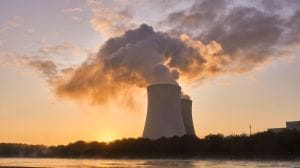Tracking the buck
Major accidents involving express trains plying across the country at the horrifying average rate of one per fortnight should have led to th...

Major accidents involving express trains plying across the country at the horrifying average rate of one per fortnight should have led to the railway minister accepting moral responsibility and tendering his resignation. After all, the railway minister8217;s responsibilities cannot be confined to only the opening up of new railway lines or workshops in his or her constituency. But it is a reflection of the decline in public morality that no such thing has happened even as performa symbolism. More important, the fact that such accidents almost inevitably are the result of human failure and technical deficiencies only reflects the state of the overall health of that behemoth called the Indian Railways. Accidents, by definition, are occurrences where individual or collective failures combine to result in disaster. Conversely, the scope for such disasters is reduced when professionalism and quality performance are accorded primacy.
The problem has to be viewed in terms of specific accidents and failures as well as the broader issues that affect rail transport safety. The former requires specific steps to prevent accidents of a similar nature. We have no doubt that each accident would be investigated and remedial measures instituted on that basis. This would be necessary to prevent similar accidents taking place in the future, although we have witnessed a tendency to forget the lessons of history. But the recent spate of dissimilar accidents points to the need for a broader approach to rail safety in the country. The importance of such safety in one of the world8217;s largest railway system, catering to the travel needs of the overwhelming non-rich segment of the population, can hardly be overemphasised. The challenge that our railway system faces is inculcating safety as a matter of culture and habit.
One of the measures that requires urgent and serious attention in this regard is that of a comprehensive approach to safety that would include training and education, research inspection and investigation into causes of accidents, and institution of policies dealing with ways and means of preventing them. The most reliable method of eliminating accidents is to enhance the professional quality of the system and the people in the organisation. A scientific, detached approach that does not involve defending turf and mistakes is critical to ensuring improvement. What we need urgently is a national transportation safety commission with a holistic approach to safety. For it to be effective, this needs to be accorded a degree of autonomy and importance that can come only from a statutory body independent of the operating agencies and departments of the government.
- 01
- 02
- 03
- 04
- 05































